Nuclear injustice: How Russia’s invasion of Ukraine shows the staggering human cost of deterrence
By Franziska Stärk, Ulrich Kühn | October 26, 2022
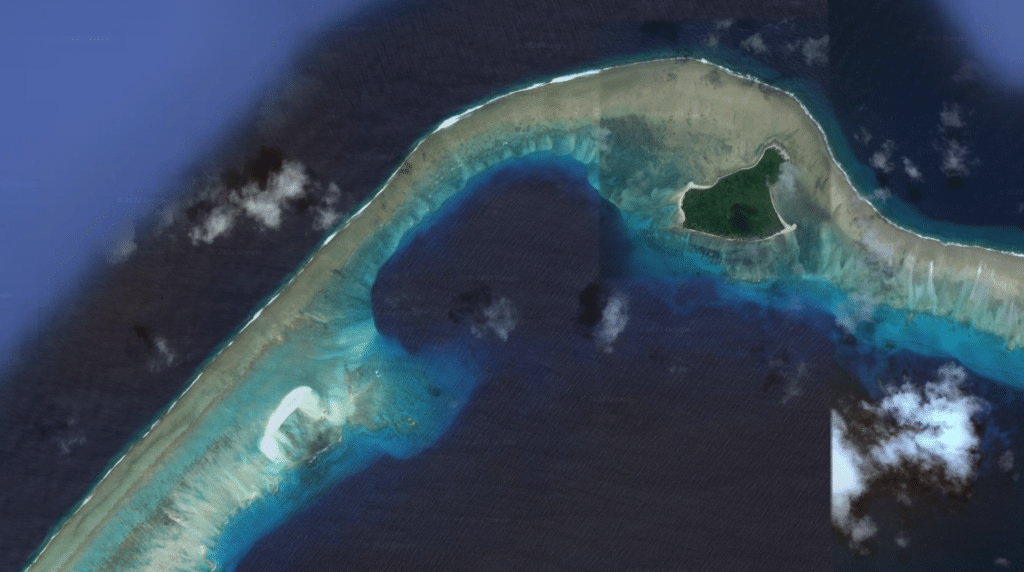 Crater left by the 1954 Castle Bravo nuclear weapons test on Bikini Atoll seen from space (Google, Maxar Technologies, Image Landsat / Copernicus, Data SIO, NOAA, US Navy, NGA, GEBCO).
Crater left by the 1954 Castle Bravo nuclear weapons test on Bikini Atoll seen from space (Google, Maxar Technologies, Image Landsat / Copernicus, Data SIO, NOAA, US Navy, NGA, GEBCO).
The global nuclear order—built on policies of nuclear deterrence, nonproliferation, and disarmament—is unjust. Russia’s war against Ukraine proves that the distribution of the costs and benefits of nuclear deterrence is particularly discriminatory. The current situation is a painful reminder that nuclear weapons are to global security what fossil fuels are to a green economy: a costly legacy of past generations thwarting justice and sustainability efforts in the long-term.
It is time for nuclear scholars, policy makers, and the general public to (re)politicize the ongoing and future negative effects of this Nuclear Injustice and push for fundamental change in the role of nuclear weapons in the world. They can do so by making Nuclear Injustice front and center at all relevant conferences and actively engaging in the debate about the nuclear lessons learned from the war in Ukraine.
An unjust order in plain sight. Nuclear Injustice has a long and complex history, but the injustice has long been obvious. Cold War theorists knew that a relative stable deterrence relationship could paradoxically induce instability at lower levels of US-Soviet conflict. More realistically, superpower stability transferred instability to developing countries. The staggering human costs of past proxy wars in Vietnam, Afghanistan, Nicaragua, Korea, or Angola underscored that nuclear deterrence between the few came with a hefty price tag for the many. These populations experienced firsthand the injustices of a nuclear order built on hierarchical spheres of (in)security.
To maintain a safe, secure, and effective nuclear deterrent and thus enjoy the continued benefits of stability, nuclear-weapon states outsourced long-term human and environmental costs to other countries. Throughout the Cold War and shortly thereafter, their nuclear testing and uranium-mining activities affected indigenous and vulnerable groups in particular. The signing of the Partial Test Ban Treaty in 1963 and then the conclusion of the Comprehensive Nuclear-Test-Ban Treaty (CTBT) in 1995 sought to rectify part of this injustice. For the CTBT to finally enter into force, however, China and the United States, among others, have to ratify the treaty—which these countries continue to refuse to do. While the environmental and radiation impacts of nuclear-weapon states’ testing legacies are increasingly well documented, the victims of testing are still waiting for justice.
In 1968, a milestone agreement sealed an unjust order by codifying unequal nonproliferation and disarmament commitments. Pushed forward by the superpowers, the Treaty on the Non-Proliferation of Nuclear Weapons (NPT) established two forms of inequality. First, nuclear “have-nots” committed not to pursue nuclear weapons while accepting the nuclear-armed status of the “haves” (i.e., China, France, the Soviet Union, the United Kingdom, and the United States—the five permanent members of the UN Security Council, or P5). In return, they gained support and access to civil nuclear energy and received promises from the haves to pursue complete disarmament. Second, the NPT made fulfillment of member states’ nonproliferation commitments a matter of individual safeguards, negotiated with and observed by the International Atomic Energy Agency. The NPT, however, left the issue of possible disarmament noncompliance mostly unattended. The indefinite extension of the treaty in 1995 finally cemented this unjust order, which holds today.
Ukraine and the consequences. Today, the consequences of Nuclear Injustice are again on full display in Ukraine. Back in February 2022, the world watched with horror as Russia shielded its blatant aggression by using nuclear threats. On February 24, 2022, Vladimir Putin warned “those who may be tempted to interfere […] from the outside. No matter who tries to stand in our way or all the more so create threats for our country and our people, they must know that Russia will respond immediately, and the consequences will be such as you have never seen in your entire history.”
Deterring external military intervention, nuclear weapons are the de facto facilitators of Russia’s aggression against and war crimes in Ukraine. Therewith, Russia is the first 21st century nuclear perpetrator under an unjust order, and Ukraine is the first 21st century victim of that order. The nuclear-weapon-free country could not deter Russian aggression, nor could the nuclear-armed West. Much of the justified furor in the West has to do with Moscow openly leveraging its nuclear arsenal to its own benefit. While supporting Ukraine against Russia has been rightfully termed a moral imperative by Western leaders, preventing direct confrontation with Moscow—which eventually could end in nuclear Armageddon—is nothing less. Advancing risky policies between these two objectives translates for Western leaders into accepting the limits and detriments of an unjust nuclear order—one that the West helped establish and maintain for decades.
In the past, US and NATO officials have repeatedly emphasized that nuclear weapons help keep the peace. Less than two years ago, NATO Secretary General Jens Stoltenberg stressed “in an uncertain world, [nuclear] weapons continue to play a vital role in preserving peace.” So far, they are right. Even under severe conditions like the war in Ukraine, nuclear-armed states may threaten each other, deliver weapons to proxies, or impose economic sanctions; yet, their populations continue to enjoy what Kenneth Waltz once famously termed “nuclear peace.” The terrifying destructiveness of the weapons in their possession deters them from going one step further, openly attacking each other.
Besides the concomitant risk of accidents and miscalculations, the case of Ukraine also demonstrates that this peace is distributed unequally. Like during the Cold War, it buys stability for some at the expense of others—this time the Ukrainians. The millions of refugees flowing into Central and Western Europe are a stark reminder to Europeans that instability is not necessarily an exclusive phenomenon of far-away regions. Perhaps less surprising, global solidarity is not a given, now that the consequences of historically grown Nuclear Injustices manifest themselves so prominently in Europe. Thirty-five states abstained from a resolution condemning the Russian invasion at the February 28, 2022 Special Session of the United Nations General Assembly—among them many African countries and both major and middle powers such as China, India, Nigeria, Pakistan, and South Africa. The combined population of all abstaining states was equivalent to 51 percent of the global population. The voting result of the mid-October resolution condemning Russia’s “illegal so-called referendums” does not look much different. Aside from the United States and its allies, no other country has enacted sanctions against Russia. Obviously, such policy choices do not take place in an ahistorical environment. Past injustices seem to matter.
The fallout from Russia’s war against Ukraine already affects global nonproliferation efforts. The recently concluded Tenth Review Conference of the NPT failed because Russia blocked consensus over disagreements regarding Ukraine. Some have argued that the war could even trigger nuclear proliferation. Back in 1994, Ukraine transferred the roughly 4,400 Soviet-era nuclear weapons stationed on its territory to Russia because of Ukrainian accession to the NPT. In exchange, Kyiv received security guarantees from the three NPT depository states under the Budapest Memorandum—Russian being one of them. Even though Ukraine never had operational control over the warheads, other countries will take note of the consequences of that deal. Much will depend on the conclusions that others (Iran or perhaps some states in East Asia) will draw about an unjust, hierarchical security architecture, with nuclear deterrence as the main pillar.
An unjust future. From today’s perspective, the future looks like a repetition of the past. Already before the war in Ukraine, nuclear modernization programs were underway in all P5 states. Together, they still possess more than 12,000 warheads. The new NATO-Russia antagonism and a looming superpower standoff between the United States and China will further decrease chances for significant reductions. Consequently, as political scientist and nuclear theorist Shampa Biswas writes, the NPT have-nots would remain in the “waiting-room of history”—waiting for the haves to deliver on their unfulfilled disarmament promises. Widening the aperture, nuclear deterrence and subsequent conventional and nuclear arms races would soak up urgently needed resources for tackling global challenges like climate change, malnutrition, and future pandemics. A resurgent bloc confrontation would seriously impede cooperative global action to deal with these challenges.
In essence, the repercussions of the war in Ukraine may contribute to a continuation or even aggravation of international injustice. Below the international level, this might affect the human dimension of justice and security even more profoundly. Staggering opportunity costs, both financial and political, could rob an entire generation of the chance to organize peace, security, and justice in more participatory and egalitarian ways. While the price tag of the current unjust nuclear order has been high for generations, it might become unaffordable for future generations.
From a system-level view, nuclear proliferation could, as Waltz wrote in 1981, theoretically cure international Nuclear Injustice. But rectifying systemic international injustice would do nothing to end the intergenerational injustice, which nuclear weapons cause and perpetuate. Reliance on nuclear weapons for security purposes would still be unfair to future generations. Thus far, a majority of NPT member states continues to believe that more nuclear-weapon states would also increase the likelihood of nuclear use. Despite the NPT’s inherent injustices, this is what keeps them in the treaty.
And they are right. Even a “limited” regional nuclear war could kill millions or even billions, disrupt global climate, and lead to mass starvation. Nuclear winter would not stop at the borders of nuclear perpetrator states—the entire global population would bear the costs of catastrophic deterrence failure or accidents. Complicating the setting, it would most likely be future generations that would have to cope with the devastating consequences, which makes necessary action today appear to be a less pressing concern. After all, why should today’s decision-makers—particularly in democracies, and nuclear-armed ones at that—care more about future voters than their current electorates?
An emerging research agenda. The past, ongoing, and future effects of Nuclear Injustice deserve much more attention from next-generation nuclear scholars. Both societal and intellectual resources to draw on already exist. The perpetuation of Nuclear Injustice shows strong parallels to the insufficient fight against climate change. Both center on the very real consequences of an inherited system that fails to incorporate the interests of future generations. At the same time, many Western societies experience a continued push towards more inclusivity, equal representation, and non-discriminatory conduct. Certain governments, among them Germany’s, have started to embrace a “feminist foreign policy,” which puts human security and equal rights at its core. Member states to the Treaty on the Prohibition of Nuclear Weapons (TPNW)—in force since 2021—have moved the issue of justice for the victims of nuclear use and testing high up on their political agenda. Despite its many flaws, the intellectual movement of “longtermism,” at least its milder forms, has helped draw attention to mankind’s common responsibility for future generations’ survival and wellbeing. The potentially catastrophic effects of nuclear war have been regularly cited by prominent proponents of a longtermist perspective on dealing with the future.
Meanwhile, as the UN reported in 2004, “transitional justice theories” have focused on the “legacy of large-scale past abuses, in order to ensure accountability, serve justice and achieve reconciliation.” Nuclear scholars have started to apply the transitional justice lens to past nuclear use and testing. Matthew Rendall has succinctly written about nuclear deterrence and intergenerational exploitation and came to very similar conclusions: “[T]he benefits of nuclear deterrence may last for only a century or two before it breaks down, while a nuclear war’s survivors will have to deal with the consequences for thousands of years.” Other scholars have repeatedly criticized the structural injustice of the NPT or unearthed archival evidence of often-ruthless US nonproliferation policies.
It is about time to connect the dots between the historical and socio-political injustices, ongoing transitional justice efforts, and a future of increasing intergenerational injustices. Nuclear Injustice is endemic to all three policy domains of the global nuclear order: deterrence, nonproliferation, and disarmament. It rests on an opportunistic, shortsighted, and self-serving security hierarchy that has underpinned global ordering since 1945. Undoubtedly, powerful status quo forces uphold this order. Still, critical historical junctures provide a chance for changing public discourse. The current crisis has the potential to shift perceptions about the costs of an unacceptable nuclear order.
Trying to soften the effects of Nuclear Injustice through “pragmatic” approaches short of nuclear disarmament will ultimately fail to rectify the systemic injustices that come with nuclear weapons possession, because their possession alone enables international, human, and intergenerational injustice. Reducing nuclear risks will therefore not be good enough. Neither will be diminishing the role of nuclear weapons in doctrinal terms. Taking concerns about Nuclear Injustice seriously can only lead to one logical conclusion: a sustainable and just security architecture is incompatible with nuclear weapons.
The Nuclear Injustice lens offers a critical framework for analysis to sharpen the arguments of scholars promoting nuclear disarmament. Even more, it can serve as a moral compass pointing toward the insufficiency of security efforts that neglect justice or outsource injustice costs to future generations. The inherent injustices of the current nuclear order deserve a much more prominent place on nuclear policy conferences’ agendas. It is therefore on the next generation of nuclear scholars to start the process of its (re)politicization. How the current nuclear order will be discussed in response to the war in Ukraine will be decisive for shaping the future global security architecture, overcoming systemic inequities, preventing further intergenerational injustice, and arousing the public to push for fundamental change in the realm of nuclear weapons.
Together, we make the world safer.
The Bulletin elevates expert voices above the noise. But as an independent nonprofit organization, our operations depend on the support of readers like you. Help us continue to deliver quality journalism that holds leaders accountable. Your support of our work at any level is important. In return, we promise our coverage will be understandable, influential, vigilant, solution-oriented, and fair-minded. Together we can make a difference.
Keywords: NPT, Nuclear Injustice, TPNW, Ukraine, developing countries, nuclear deterrence
Topics: Nuclear Risk, Nuclear Weapons



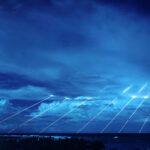

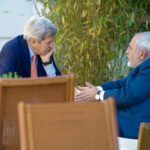
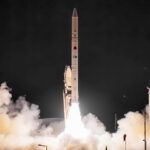
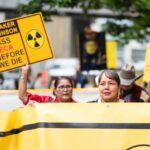




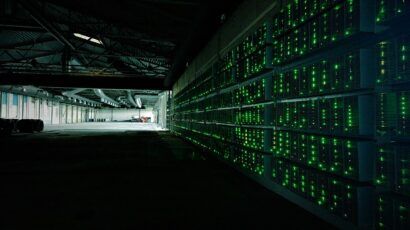

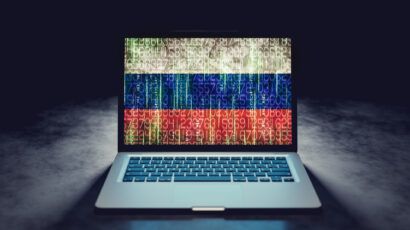

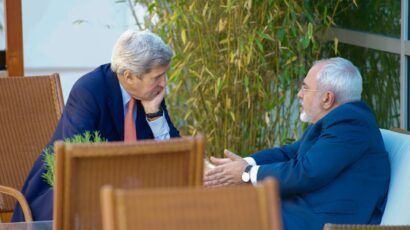
I think this bulletin serves a valuable purpose. But it is sad that ( in this article anyway ), the history and role of the US/NATO in provoking the current proxy war with Russia is left out. Here is a precient interview with Noam Chomsky from 2015:
https://www.youtube.com/watch?v=vRbnPA3fd5U
When Henry Kissinger and Donald Trump sound like the voice of reason in calling for peace, you can be forgiven for thinking that the world has gone completely mad. I hope their call is heeded.
Peace and good wishes to all.
If I were president I would tell Putin the sanctions will not only escalate, but if he refuses to retreat within the next 7 days, all sanctions will become permanent.
If Putin is allowed to conquer Ukraine, if he and his regime is not severely punished by the rest of the world, it will make one thing absolutely clear: that the possession of nuclear weapons allows the military conquest of nations that lack them without consequence. This will result in two things; more wars of conquest until all non-nuclear nations are either conquered or colonized, and the massive proliferation of nuclear weapons within any nation that can build or steal them. In a ‘Putin Victorious’ world, the only hope of any nation – or culture – to continue to exist… Read more »